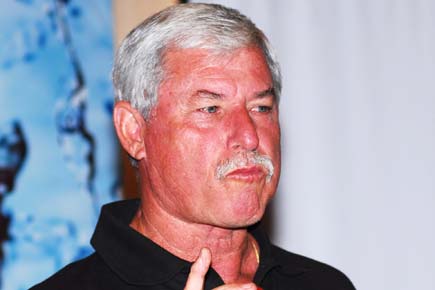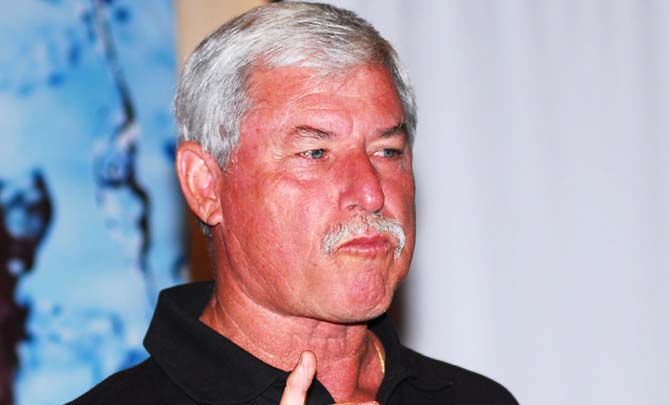Backing the move of authorities in pushing for day-night Test matches, New Zealand cricket legend, Sir Richard Hadlee, today said that it is beneficial for the future of the game as it not only attracted crowds, but was also more suitable for television viewing

Backing the move of authorities in pushing for day-night Test matches, New Zealand cricket legend, Sir Richard Hadlee, today said that it is beneficial for the future of the game as it not only attracted crowds, but was also more suitable for television viewing.
ADVERTISEMENT

Richard Hadlee
"Day-night cricket is the future of the game. I think, what we saw at the Adelaide Oval when New Zealand took on Australia, was a wonderful spectacle. Clearly it attracted the crowds and is great for television, I think," Sir Richard told reporters at the 'Bombay House' here, where he was hosted by the Tata Trusts.
The first-ever day and night Test was played between Trans-Tasmanian rivals at the Adelaide Oval last year, in which Australia defeated the Kiwis by three wickets.
Hadlee felt that the pink ball, used in the game instead of the traditional red cherry, had behaved better than expected.
"We saw how the pink ball worked visually (well) on television. It performed better for players than they expected, because there was some controversy and lack of confidence from players whether actually the pink ball will last and whether it could be seen.
"We saw an extra-ordinary Test match. Even (if) that was over in three days, it was a (good) contest between bat and ball. And that's what you wanted. It was a wonderful spectacle."
Hadlee, at one time the world record holder for the maximum number of Test wickets (431) that was overtaken by one of his all round rivals of that time - India's Kapil Dev, was only wary of places where the dew factor came into the picture.
"The only problem (as I foresee) in some areas around the world is the dew factor and that the ball could be affected. That is going to be a disadvantage, particularly to the fielding team, and something needs to be worked through (to even the balance)," he said.
"But understand, South Africa now have got into the concept against Australia and it (venue) is the Adelaide Oval again in November. We are looking at (playing the day-night Test) in New Zealand, but that might be another year or so away before that happens in our country," said Hadlee.
"We would only have a couple of venues that potentially could host day-night Test cricket. Eden Park could be the logical one and potentially Seddon Park in Hamilton. So, ya it's the future," the 64-year-old former right arm pacer, who played in 86 Test matches between 1973 and 1990, said. He was confident that the concept would catch on.
"The fact that New Zealand and Australia were the first two teams to pioneer it, we are part of (the) history. I think it will catch around the world and it (will be) win-win," he added. He was non-committal whether India and New Zealand can play a day-night Test when the Kiwis visit the country between late September and November after the domestic Duleep Trophy tournament is held under lights to get the home team's players to get used to the conditions.
"I am not quite familiar with that. But clearly it is important for the players to have practise games. You cannot ask them to go out there and ask them to play a day-night game against the pink ball. It's unrealistic in a professional environment or era. That (new concept) needs to be tried and tested, so players can get some confidence," said Sir Hadlee who amassed 3124 runs with two centuries to boot.
"That makes a lot of sense. Because conditions are different all around the world. So we don't really know how the pink ball is going to work here in India and that's why players need to have those practise games (and) that's what is happening for South Africa when they go to Australia.
"They were against it initially, because they were to go under-prepared. You got to be fair. If it works, it works. It is the game of the future. Probably one Test in a series is fair enough. I think most people like to see the traditional format during the day, one-off Test (in a series) during night, every now and again, is reasonable," Hadlee remarked.
 Subscribe today by clicking the link and stay updated with the latest news!" Click here!
Subscribe today by clicking the link and stay updated with the latest news!" Click here!






